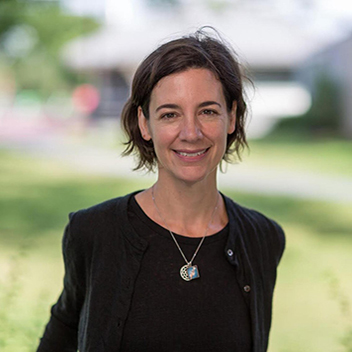By Alexander Huls, deputy editor, YFile
Professor Deanne Williams has introduced experiential education to two summer Faculty of Liberal Arts & Professional Studies courses – AP/EN 2140 Drama and AP/EN 3535 Shakespeare – by enabling students to see productions of the plays they are reading and studying.
For her first time teaching these courses in the summer, Williams wanted to try something different. Theatre trips with students have always been an element of Williams’ full-year courses, but they were typically dependent on chance – only possible when productions in the Toronto area happened to mirror the plays she was teaching in her syllabus.

In the fall of 2021, Williams first approached Tina Choi, who was then the English Department Chair, with an idea for teaching her Shakespeare and drama courses in the summer. “I proposed to teach them as experiential courses where the syllabus would be determined by plays that we could actually go and see live during the summertime, making use of the Stratford Festival, the Dream in High Park, the Soulpepper Theatre and more,” Williams says.
She knew students having the chance to see the plays they read in class come to life on a stage could have a major impact on their learning. “There’s so much more ownership of the live theatre experience that the students have, which gives them an incredible sense of authority [over the material].”
With the approval of Choi, and having secured experiential education funding through York’s Academic Innovation Fund to support the cost of tickets and transportation, the courses moved forward earlier this summer. Since then, in both courses, students will typically spend two full three-hour classes devoted to reading plays like Shakespeare’s A Midsummer Night’s Dream, or Sizwe Banzi is Dead by Athol Fugard, John Kani and Winston Ntshona, and they will then go on to see the stage production together.
“To enrich our in-class experience of studying the texts, where I am telling them a lot of things, we are also experiencing a live show together. Students will all have their own unique experience of that, which then they can bring back to the classroom for discussion,” Williams says. “We’ve had incredibly exciting and spirited discussions about the shows we’ve seen.”
Further accentuating the experiential element of the classes, Williams has arranged talkbacks with the actors and directors of the productions, allowing them to see how artists engage with and interpret the texts. For example, the Shakespeare class had the chance to interact with York Assistant Professor of acting and directing, Jamie Robinson, about directing A Midsummer Night’s Dream for the 40th anniversary of Dream in High Park.
The benefits of the experiences this summer have not just been academic. For many of the students, it’s provided them – post COVID-19 isolation – a means of connection through, for example, several bus trips to the Stratford Festival. “There’s a kind of summer camp aspect. They’re bringing snacks, they’re making wonderful friendships, and you can really feel that sense of community being created in the classroom,” Williams says. “After so many years of being online, and that kind of alienation, it’s wonderful to see the students really bonding.”
The summer’s experiences have also had an impact on Williams, notably how she approaches teaching drama studies. Typically, the plays she teaches have been taught in historical chronological order – i.e. starting with plays by the ancient Greeks and moving up to contemporary drama. But because the summer courses’ syllabi were determined by the productions that were available to see throughout the summer, and what students could logistically attend, Williams had to approach things in another way.
“Instead of teaching Shakespeare and drama in a linear way, with a commitment to history, it’s been very interesting to think about teaching the plays through themes and questions and shared connections,” she says. “It’s very different from any other teaching I’ve done, but it’s certainly my favourite teaching so far that I’ve ever done.”
It’s all led to Williams being committed to teach more Shakespeare and drama courses this way in the future, in good part because the experiential education approach – including its collective nature – channels something of the power of theatre overall. “Theatre, from its very origins, has a spiritual aspect to it. There’s something about that collectivity and community in the environment of the theatre that is very moving and transformative,” says Williams.


